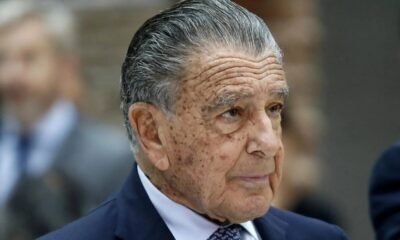INTERNACIONAL
DNI Tulsi Gabbard declassified Trump-Russia docs: Here’s what they say
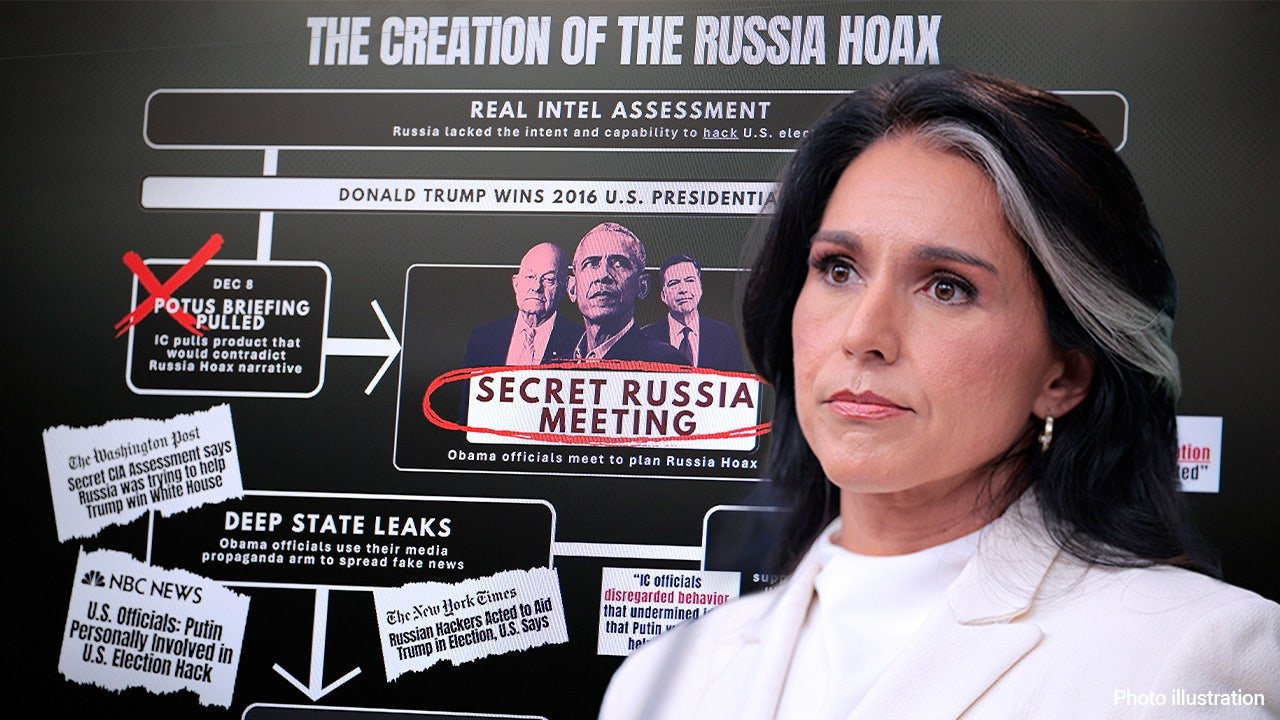
NEWYou can now listen to Fox News articles!
Director of National Intelligence Tulsi Gabbard declassified a slew of documents this month, revealing that Obama administration officials «manufactured» intelligence to push the Trump-Russia collusion narrative.
Director of National Intelligence Tulsi Gabbard talks to reporters in the Brady Press Briefing Room at the White House July 23, 2025, in Washington, DC., after releasing newly declassified documents about the Trump-Russia collusion «hoax.» (Chip Somodevilla/Getty Images; Fox News Digital)
Here’s a look at the newly declassified records:
Declassified Presidential Daily Brief
Documents revealed that in the months leading up to the November 2016 election, the intelligence community consistently assessed that Russia was «probably not trying … to influence the election by using cyber means.»
One instance was on Dec. 7, 2016, weeks after the election. Then-Director of National Intelligence James Clapper’s talking points stated, «Foreign adversaries did not use cyberattacks on election infrastructure to alter the U.S. presidential election outcome.»
Fox News Digital obtained a declassified copy of the Presidential Daily Brief, which was prepared by the Department of Homeland Security, with reporting from the CIA, Defense Intelligence Agency, FBI, National Security Agency, Department of Homeland Security, State Department and open sources, for Obama, dated Dec. 8, 2016.
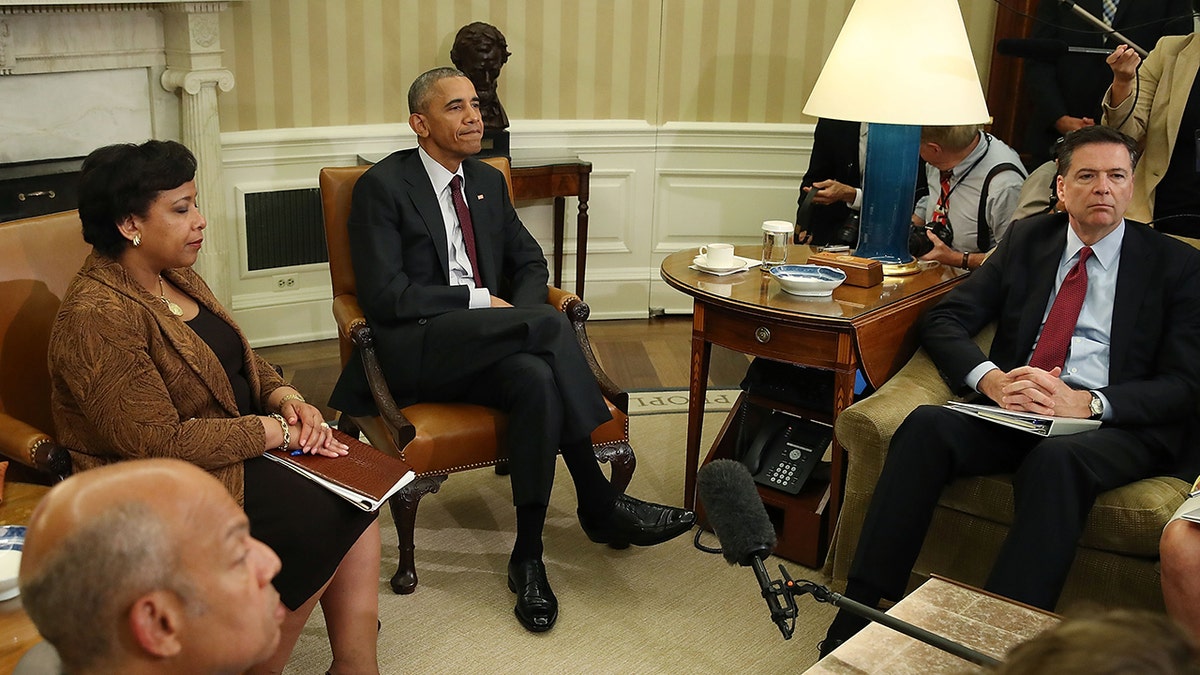
President Barack Obama speaks with reporters in the Oval Office July 19, 2016, after a meeting with Attorney General Loretta Lynch and FBI Director James Comey. (Mark Wilson/Getty Images)
«We assess that Russian and criminal actors did not impact recent U.S. election results by conducting malicious cyber activities against election infrastructure,» the Presidential Daily Brief stated. «Russian Government-affiliated actors most likely compromised an Illinois voter registration database and unsuccessfully attempted the same in other states.»
But the brief stated that it was «highly unlikely» the effort «would have resulted in altering any state’s official vote result.»
«Criminal activity also failed to reach the scale and sophistication necessary to change election outcomes,» it stated.
The brief noted that the Office of the Director of National Intelligence assessed that any Russian activities «probably were intended to cause psychological effects, such as undermining the credibility of the election process and candidates.»
The brief stated that cyber criminals «tried to steal data and to interrupt election processes by targeting election infrastructure, but these actions did not achieve a notable disruptive effect.»
Fox News Digital obtained declassified, but redacted, communications from the FBI in the Presidential Daily Brief, stating that it «should not go forward until the FBI» had shared its «concerns.»

Former Director of National Intelligence James Clapper and former CIA Director John Brennan appear at a public hearing in Washington. (Reuters/Gary Cameron )
Those communications revealed that the FBI drafted a «dissent» to the original Presidential Daily Brief.
OBAMA ADMIN ‘MANUFACTURED’ INTELLIGENCE TO CREATE 2016 RUSSIAN ELECTION INTERFERENCE NARRATIVE, DOCUMENTS SHOW
The communications revealed that the brief was expected to be published Dec. 9, 2016, the following day, but later communications revealed the Office of the Director of National Intelligence, «based on some new guidance,» decided to «push back publication» of the Presidential Daily Brief.
«It will not run tomorrow and is not likely to run until next week,» wrote the deputy director of the Presidential Daily Brief at the Office of the Director of National Intelligence, whose name is redacted.
The following day, Dec. 9, 2016, a meeting convened in the White House Situation Room, with the subject line starting: «Summary of Conclusions for PC Meeting on a Sensitive Topic (REDACTED.)»
The meeting included top officials in the National Security Council, Clapper, then-CIA Director John Brennan, then-National Security Advisor Susan Rice, then-Secretary of State John Kerry, then-Attorney General Loretta Lynch, then-Deputy FBI Director Andrew McCabe, among others, to discuss Russia.
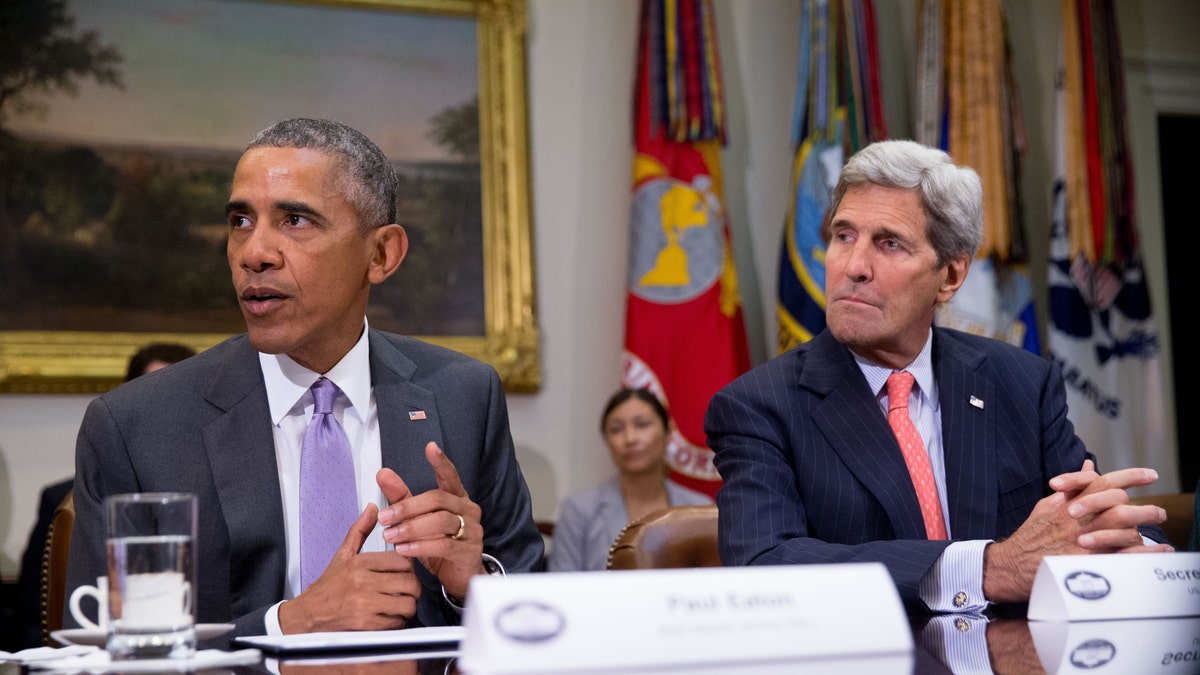
President Obama, accompanied by Secretary of State John Kerry, meets with veterans and Gold Star Mothers to discuss the Iran nuclear deal in the Roosevelt Room at the White House in Washington Sept. 10, 2015. (AP Images)
The declassified meeting record, obtained by Fox News Digital, revealed that principals «agreed to recommend sanctioning of certain members of the Russian military intelligence and foreign intelligence chains of command responsible for cyber operations as a response to cyber activity that attempted to influence or interfere with U.S. elections, if such activity meets the requirements» from an executive order that demanded the blocking of property belonging to people engaged in cyber activities.
After the meeting, according to the Office of the Director of National Intelligence, Clapper’s executive assistant emailed intelligence community leaders tasking them to create a new intelligence community assessment «per the president’s request» that detailed the «tools Moscow used and actions it took to influence the 2016 election.»
«ODNI will lead this effort with participation from CIA, FBI, NSA, and DHS,» the record states.
Later, Obama officials «leaked false statements to media outlets» claiming that «Russia has attempted through cyber means to interfere in, if not actively influence, the outcome of an election.»
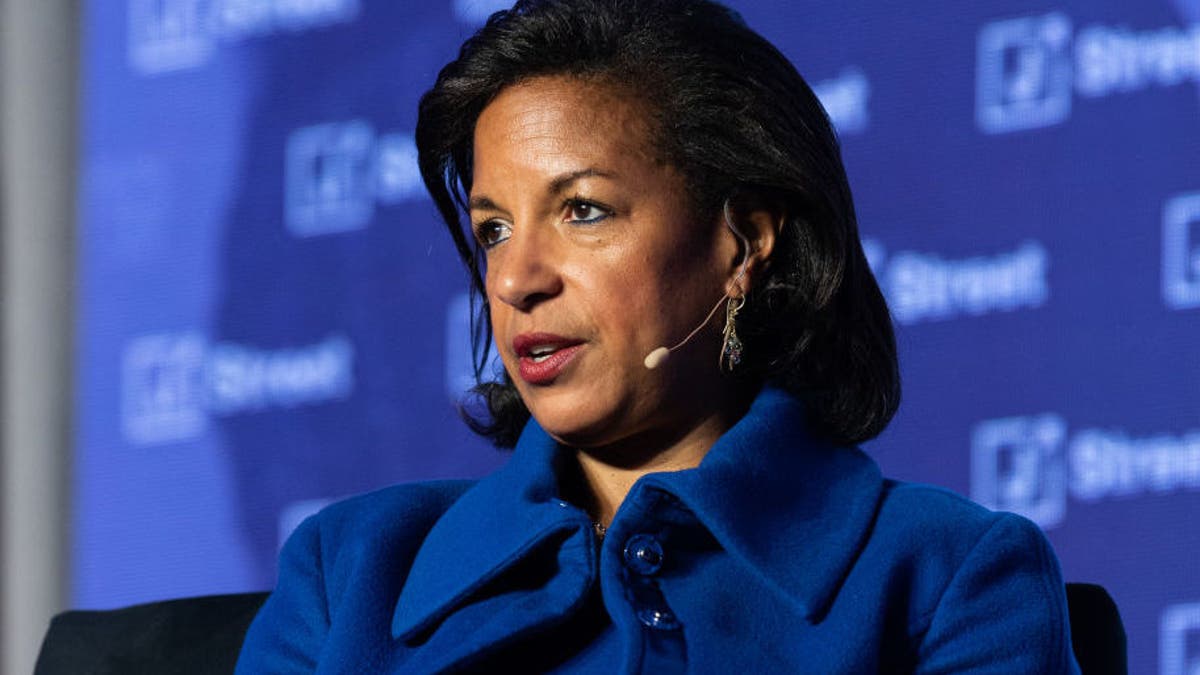
Former National Security Advisor Susan Rice speaks at the J Street National Conference in Washington in April 2018. (Getty Images)
By Jan. 6, 2017, a new Intelligence Community Assessment was released that, according to the Office of the Director of National Intelligence, «directly contradicted the IC assessments that were made throughout the previous six months.»
Intelligence officials told Fox News Digital that the ICA was «politicized» because it «suppressed intelligence from before and after the election showing Russia lacked intent and capability to hack the 2016 election.»
Officials also said it deceived the American public «by claiming the IC made no assessment on the ‘impact’ of Russian activities,» when the intelligence community «did, in fact, assess for impact.»
«The unpublished December PDB stated clearly that Russia ‘did not impact’ the election through cyber hacks on the election,» an official told Fox News Digital.
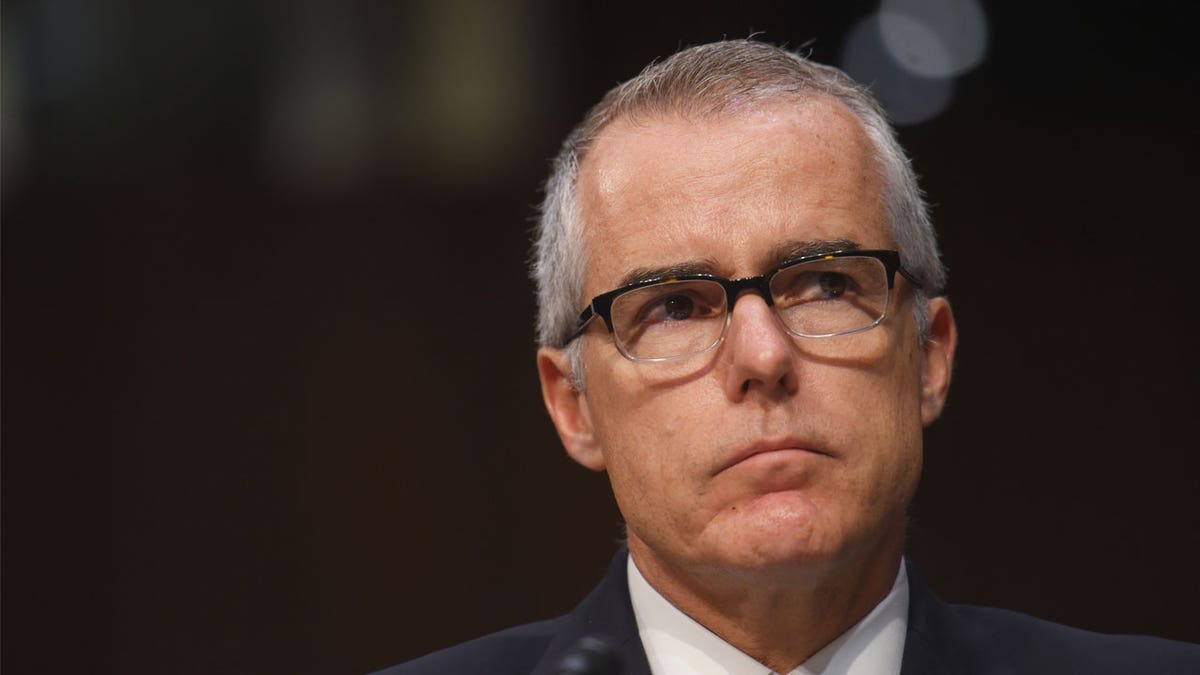
Former FBI Deputy Director Andrew McCabe testifies during a congressional hearing in Washington. (Jahi Chikwendiu/The Washington Post via Getty Images)
FBI LAUNCHES CRIMINAL INVESTIGATIONS OF JOHN BRENNAN, JAMES COMEY: DOJ SOURCES
The official also said the ICA had assessed that «Russia was responsible for leaking data from the DNC and DCCC,» while «failing to mention that FBI and NSA previously expressed low confidence in this attribution.»
Officials said the intelligence was «politicized» and then «used as the basis for countless smears seeking to delegitimize President Trump’s victory, the years-long Mueller investigation, two Congressional impeachments, high level officials being investigated, arrested, and thrown in jail, heightened US-Russia tensions, and more.»
Declassified House Intelligence Committee Report
A report prepared by the House Permanent Select Committee on Intelligence in 2020 said the intelligence community did not have any direct information that Russian President Vladimir Putin wanted to help elect Donald Trump during the 2016 presidential election, but, at the «unusual» direction of then-President Barack Obama, published «potentially biased» or «implausible» intelligence suggesting otherwise.
The report, based on an investigation launched by former House Intelligence Committee Chairman Devin Nunes, R-Calif., was dated Sept. 18, 2020. At the time of the publication of the report, Rep. Adam Schiff, D-Calif., was the chairman of the committee.
The report has never before been released to the public and instead has remained highly classified within the intelligence community.
Fox News Digital obtained the «fully-sourced limited-access investigation report that was drafted and stored in a limited-access vault at CIA Headquarters.» The report includes some redactions.
BRENNAN DIRECTED PUBLICATION OF ‘IMPLAUSIBLE’ REPORTS CLAIMING PUTIN PREFERRED TRUMP IN 2016, HOUSE FOUND
The committee focused on the creation of the Intelligence Community Assessment of 2017, in which then-CIA Director John Brennan pushed for the inclusion of the now-discredited anti-Trump dossier despite knowing it was based largely on «internet rumor,» as Fox News Digital previously reported.
According to the report, the ICA was a «high-profile product ordered by the President, directed by senior IC agency heads, and created by just five CIA analysts, using one principal drafter.»
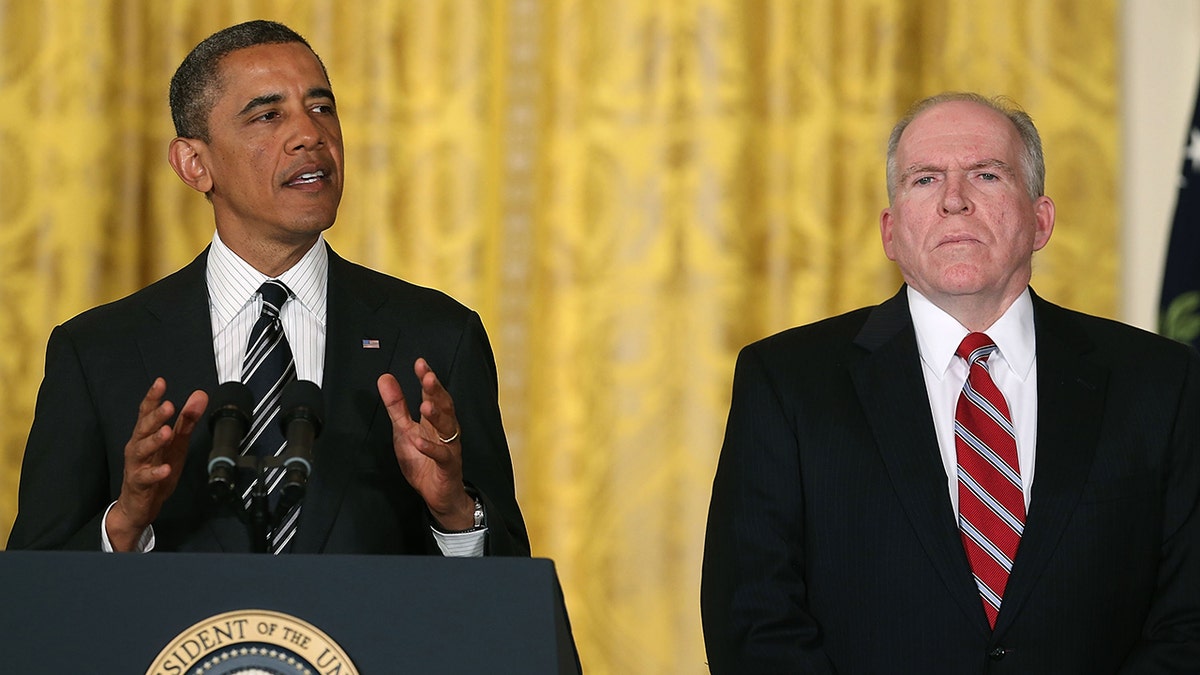
President Obama nominates John Brennan as CIA director during a ceremony at the White House Jan. 7, 2013. (Mark Wilson/Getty Images)
«Production of the ICA was subject to unusual directives from the President and senior political appointees, and particularly DCIA,» the report states. «The draft was not properly coordinated within CIA or the IC, ensuring it would be published without significant challenges to its conclusions.»
The committee found that the five CIA analysts and drafter «rushed» the ICA’s production «in order to publish two weeks before President-elect Trump was sworn-in.»
«Hurried coordination and limited access to the draft reduced opportunities for the IC to discover misquoting of sources and other tradecraft concerns,» the report states.
The report states that Brennan «ordered the post-election publication of 15 reports containing previously collected but unpublished intelligence, three of which were substandard — containing information that was unclear, of uncertain origin, potentially biased, or implausible — and those became foundational sources for the ICA judgements that Putin preferred Trump over Clinton.»
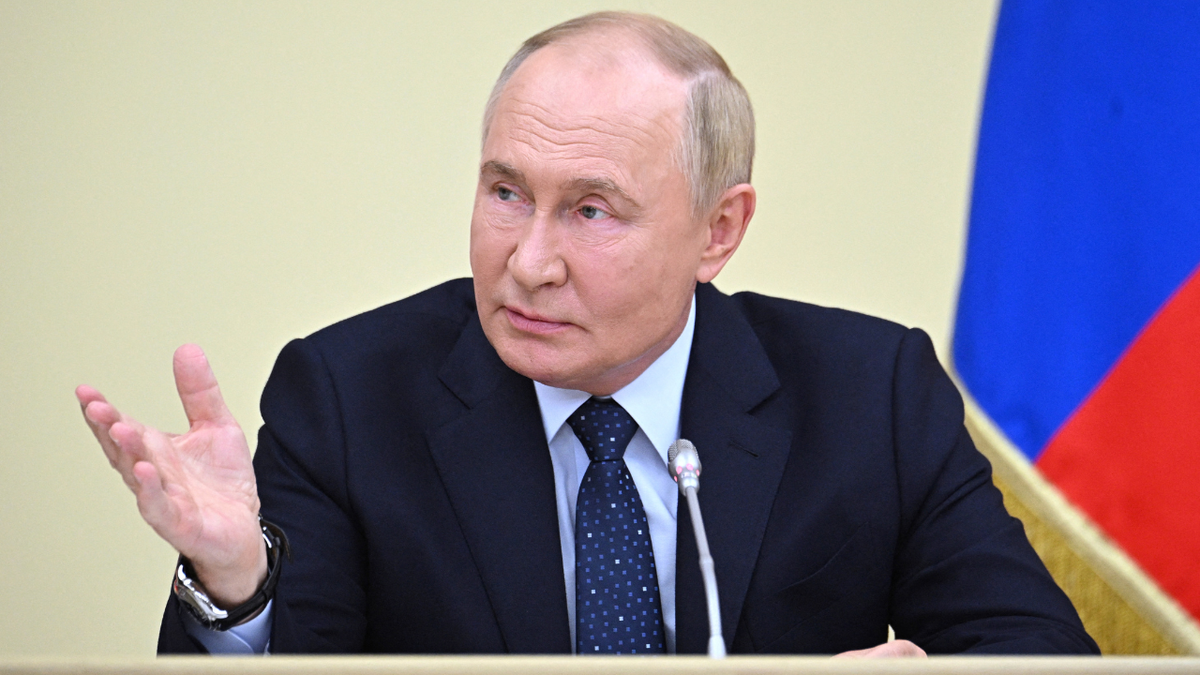
Russian President Vladimir Putin chairs a government meeting at his Novo-Ogaryovo residence Aug. 7, 2024. (Sergei Bobylyov/Pool/AFP via Getty Images)
«The ICA misrepresented these reports as reliable, without mentioning their significant underlying flaws,» the committee found.
«One scant, unclear, and unverifiable fragment of a sentence from one of the substandard reports constitutes the only classified information cited to suggest Putin ‘aspired’ to help Trump win,» the report states, adding that the ICA «ignored or selectively quoted reliable intelligence reports that challenged — and in some cases undermined — judgments that Putin sought to elect Trump.»
The report also states that the ICA «failed to consider plausible alternative explanations of Putin’s intentions indicated by reliable intelligence and observed Russian actions.»
The committee also found that two senior CIA officers warned Brennan that «we don’t have direct information that Putin wanted to get Trump elected.»
Despite those warnings, the Obama administration moved to publish the ICA.
The ICA «did not cite any report where Putin directly indicated helping Trump win was the objective.»
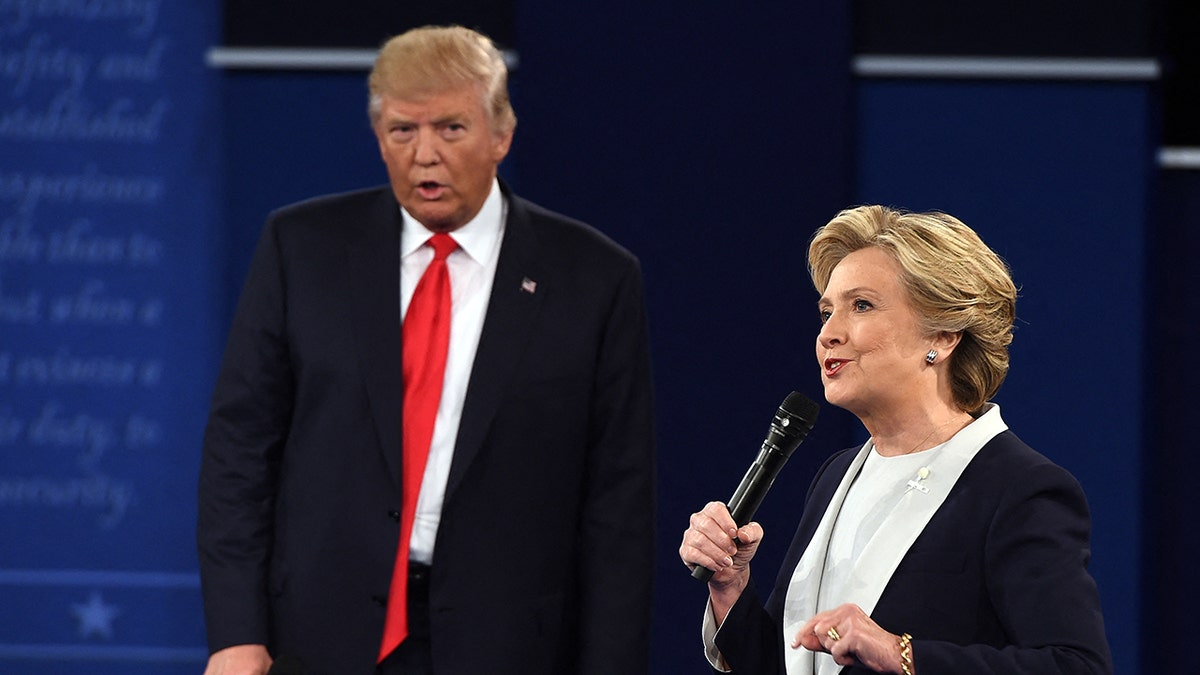
Hillary Clinton and Donald Trump participate in the second presidential debate at Washington University in St. Louis Oct. 9, 2016. (Robyn Beck/AFP via Getty Images)
The ICA, according to the report, excluded «significant intelligence» and «ignored or selectively quoted» reliable intelligence in an effort to push the Russia narrative.
The report also includes intelligence from a longtime Putin confidant who explained to investigators that «Putin told him he did not care who won the election,» and that Putin «had often outlined the weaknesses of both major candidates.»
The report also states that the ICA omitted context showing that the claim that Putin preferred Trump was «implausible —if not ridiculous.»
The committee also found that the ICA suppressed intelligence that showed that Russia was actually planning for a Hillary Clinton victory because «they knew where (she) stood» and believed Russia «could work with her.»
The committee also noted that the ICA «did not address why Putin chose not to leak more discrediting material on Clinton, even as polls tightened in the final weeks of the election.»
The committee also found that the ICA suppressed intelligence showing that Putin was «not only demonstrating a clear lack of concern for Trump’s election fate,» but also indicated «that he preferred to see Secretary Clinton elected, knowing she would be a more vulnerable President.»
Declassified Hillary Clinton section of House Intelligence Committee Report
One section of the declassified House Intelligence Committee report states that the material in Putin’s possession included Russian intelligence on Democratic National Committee information allegedly showing that senior Democratic leaders found Clinton’s health to be «extraordinarily alarming.»
«As of September 2016, the Russian Foreign Intelligence Service had DNC information that President Obama and Party leaders found the state of Secretary Clinton’s health to be ‘extraordinarily alarming,’ and felt it could have ‘serious negative impact’ on her election prospects,» the report states. «Her health information was being kept in ‘strictest secrecy’ and even close advisors were not being fully informed.»
The Russian Foreign Intelligence Service also allegedly had DNC communications that showed that «Clinton was suffering from ‘intensified psycho-emotional problems, including uncontrolled fits of anger, aggression, and cheerfulness.’»

Democratic presidential nominee Hillary Clinton and her running mate, Sen. Tim Kaine ,appear onstage with their families at the Democratic National Convention in Philadelphia July 28, 2016. (Alex Wong/Getty Images)
«Clinton was placed on a daily regimen of ‘heavy tranquilizers’ and while afraid of losing, she remained ‘obsessed with a thirst for power,’» the report states.
The Russians also allegedly had information that Clinton «suffered from ‘Type 2 diabetes, Ischemic heart disease, deep vein thrombosis, and chronic obstructive pulmonary disease.’»
HILLARY CLINTON AIDE DISMISSES TULSI GABBARD’S CLAIMS AS ‘RIDICULOUS’
The Russians also allegedly possessed a «campaign email discussing a plan approved by Secretary Clinton to link Putin and Russian hackers to candidate Trump in order to ‘distract the American public’ from the Clinton email server scandal.»
Gabbard, during the White House press briefing Wednesday, said there were «high-level DNC emails that detailed evidence of Hillary’s, quote, psycho-emotional problems, uncontrolled fits of anger, aggression and cheerfulness, and that then-Secretary Clinton was allegedly on a daily regimen of heavy tranquilizers.»
CLICK HERE TO GET THE FOX NEWS APP
A tranquilizer is a drug used to reduce mental disturbance, such as anxiety and tension. Tranquilizers are typically prescribed to individuals suffering from anxiety, sleep disturbances and related conditions affecting their mental and physical health.
A Clinton aide dismissed the claims as «ridiculous.»
Neither Clinton nor Obama responded to Fox News Digital’s requests for comment.
INTERNACIONAL
Trump team ‘pissed off’ with Kemp over candidate pick in Georgia’s Senate GOP primary battle
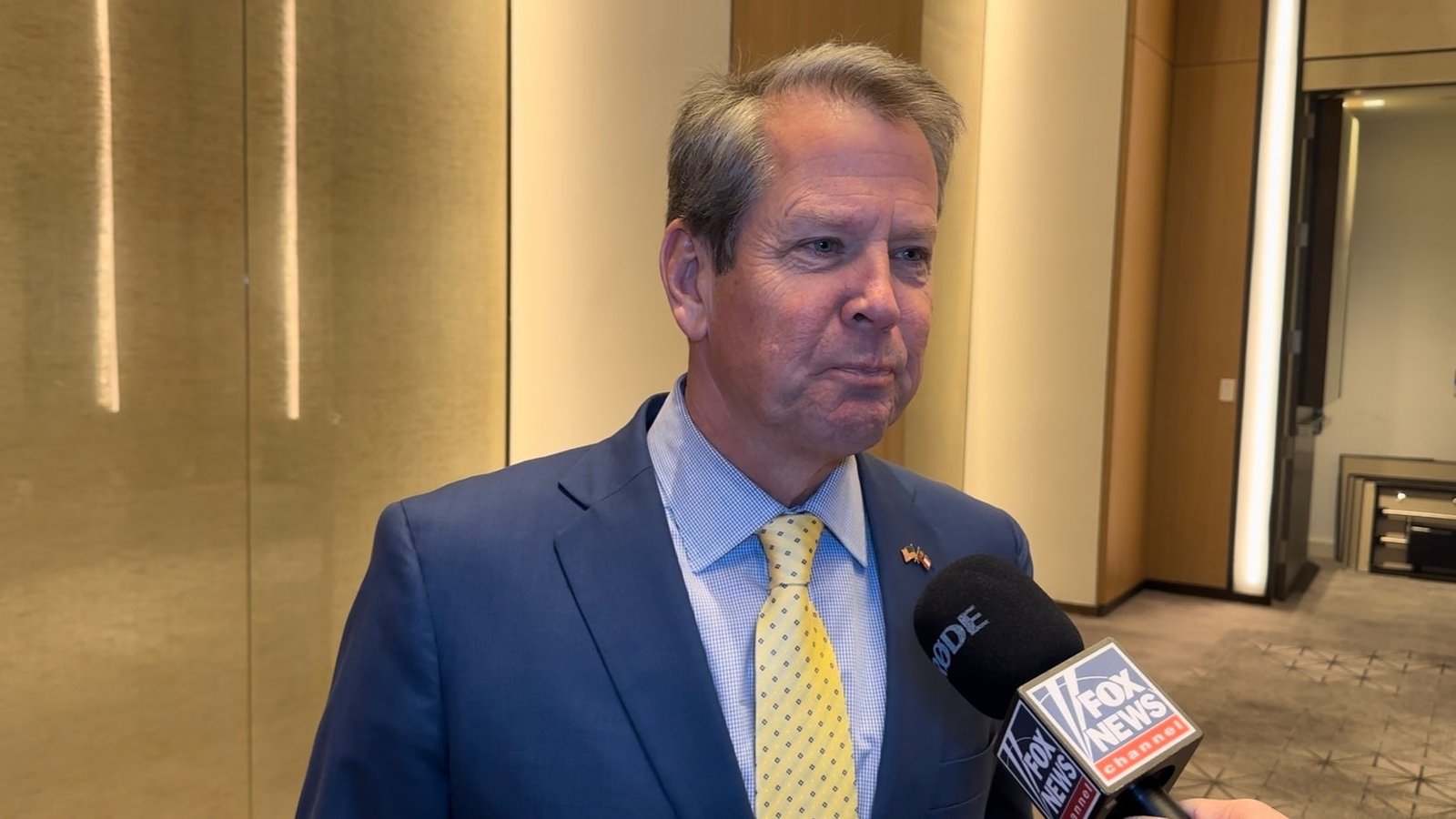
NEWYou can now listen to Fox News articles!
President Donald Trump’s political team and top advisers to Republican Gov. Brian Kemp of Georgia apparently aren’t on the same page when it comes to the key southeastern battleground state’s Republican Senate primary.
The race is crucial for Republicans aiming to expand their Senate majority, as Sen. Jon Ossoff, who is running for re-election in a state that Trump narrowly carried in last year’s election, is viewed by the GOP as the most vulnerable Democrat seeking re-election in next year’s midterm elections.
Kemp, a popular two-term conservative governor whom Trump had heavily criticized in the past, was courted by national Republicans to take on Ossoff. But Kemp, who is term-limited, announced earlier this year that he would pass on a 2026 Senate run.
Sources in Trump’s political orbit and Republican sources in Georgia confirm to Fox News that there was an agreement between the president’s political operation and Kemp’s political team that they would work together to find a candidate that they could all unify behind to take on Ossoff in the Senate race.
FIRST ON FOX: TRUMP HOUSE ALLY TO LAUNCH SENATE BID NEXT WEEK IN KEY BATTLEGROUND STATE
Georgia Gov. Brian Kemp is interviewed by Fox News Digital at a Republican Governors Association meeting in Washington D.C. on Feb. 20, 2025. (Fox News – Paul Steinhauser)
Those sources also confirm that Kemp and Trump – the ultimate kingmaker in GOP politics – met two weeks ago to discuss the Senate race in Georgia.
But when the governor floated the name of former University of Tennessee football coach Derek Dooley, a source close to the president’s political team said «they were told to stand down, because Trump’s team wasn’t ready to move forward on anybody.»
And when Kemp and his team did move forward with Dooley, it upset Trump’s advisers, who, according to sources, were «already pretty annoyed» that Kemp had passed earlier this year on taking on Ossoff in the Senate race.
POPULAR GOP GOVERNOR PASSES ON SENATE BID IN 2026
«We had a deal to work together,» a top political source in the Trump orbit told Fox News on Friday. «Kemp went out on his own – which has frustrated and pissed off Trump orbit.»
The source added that «the best option for the GOP in Georgia was and is Brian Kemp. Unfortunately, he has chosen the path of the weak, and – instead of leading – has decided to circumvent and self-anoint a candidate no one has heard of and the president hasn’t met.»
«The operation that delivered the win in Georgia was the Trump organization – not a faux operation – it’s hard to see it rallying behind the blind ambition of someone more interested in 2028 than in 2026,» the source said, in a not-so-veiled reference to Kemp’s potential interest in seeking the 2028 Republican presidential nomination.

Donald Trump shakes hands with Georgia Gov. Brian Kemp after speaking at a temporary relief shelter as he visits areas impacted by Hurricane Helene, Friday, Oct. 4, 2024, in Evans, Georgia. (AP Photo/Evan Vucci)
But a source close to the governor told Fox News that it’s factually not true that they were told to stand down on Dooley.
And the source added that Kemp meant what he said that he wants to work with the president and his team and remains that way.
Kemp’s political team first floated the Dooley trial balloon about two months ago. A longtime Georgia-based Republican strategist said the reaction in the Peach State among Republicans «was very negative.»
Dooley, who is the son of former longtime University of Georgia football coach Vince Dooley, is close with Kemp, who is a longtime friend.
And Dooley has hired two top Kemp political advisers to help with his potential Senate campaign.
A Republican source in Georgia says a decision by Dooley on whether he’ll run could come as early as next week.
Republican Rep. Mike Collins, a Trump ally and supporter in the House, will announce his candidacy for the Senate next week, sources with knowledge told Fox News Digital on Friday.
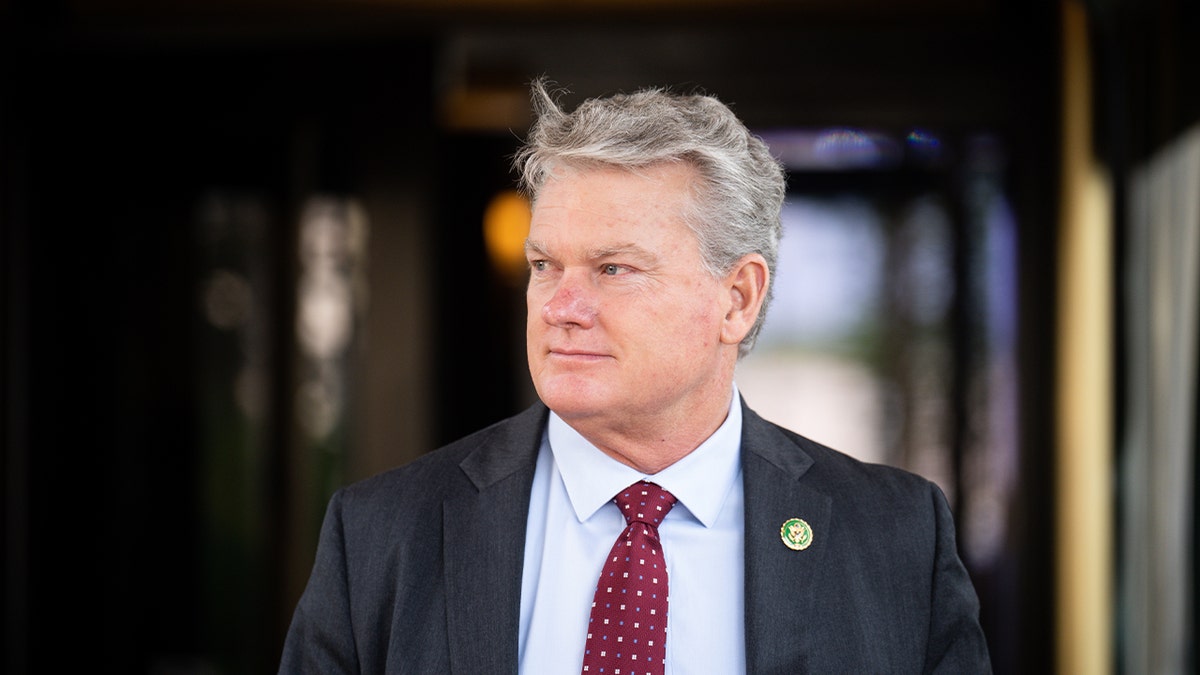
Fox News has learned that Rep. Mike Collins of Georgia will launch a Senate campaign next week in the race against Democratic Sen. Jon Ossoff. (Bill Clark)
Republican Rep. Buddy Carter, who for a decade has represented a district in coastal Georgia, launched a Senate campaign in the spring.
Georgia Insurance Commissioner John King also announced a run, but ended his bid on Thursday.
Trump and Kemp have a turbulent political history.
Trump backed the then-Georgia secretary of state in his successful 2018 campaign for governor.
But during the two years after his 2020 election defeat to former President Joe Biden, which included a razor-thin loss in Georgia, Trump attacked Kemp for failing to overturn the election results in his state.
Trump toned down the criticism in 2022 after Kemp crushed Trump-backed former Sen. David Perdue in the state’s GOP gubernatorial primary, as Kemp successfully cruised to re-election to a second term as governor.
KEMP SPEAKS OUT AFTER TRUMP FLIPS AND PRAISES THE GEORGIA GOVERNOR
But last summer, amid the 2024 presidential campaign, Trump went on a 10-minute tirade against Kemp at a rally in Atlanta just blocks from the Georgia State Capitol. Trump blamed the governor not only for failing to overturn the 2020 vote count but also for not stopping a county prosecutor from indicting the former president for his attempts to reverse the results.
Trump quickly changed his tune on Kemp days later, and praised the governor in a social media post «for all of your help and support in Georgia, where a win is so important to the success of our Party and, most importantly, our Country.»

Then-Georgia Republican gubernatorial candidate Brian Kemp, left, walks with President Donald Trump as Trump arrives for a rally in Macon, Georgia. (AP )
Kemp, in a Fox News Digital interview a few days later, downplayed Trump’s tirade against him, calling it a «small distraction that’s in the past.»
As Dooley moves closer to launching a campaign, Collins is just days from declaring his candidacy.
Collins, a businessman who founded a trucking company, is in his second term representing Georgia’s 10th Congressional District, which includes a large swath of urban, suburban, and rural areas between Atlanta and Augusta.
The conservative lawmaker, who’s the son of the late Republican Rep. Mac Collins of Georgia, has been moving closer to launching a Senate campaign for weeks.
Collins was an early backer of the president, supporting him as Trump first ran for the Republican presidential nomination in the 2016 cycle.
Collins at the beginning of this year reintroduced the Laken Riley Act, which mandates that undocumented immigrants charged with burglary or theft be detained. It’s named after a Georgia nursing student killed by a man who had illegally entered the U.S. The case grabbed national attention.
The bill, which quickly passed the Republican-controlled House and Senate, became the first legislation signed into law by Trump as he started his second tour of duty in the White House.
CLICK HERE TO GET THE FOX NEWS APP
A Republican source said that Collins has a «great relationship» with the president and his political team.
And a Georgia-based Republican consultant told Fox News that «the lane that Mike is going to run in is the America First fighter who’s been with President Trump.
Carter is also courting a Trump endorsement in the GOP primary.
INTERNACIONAL
El proceso creativo de Georges Brassens: una mirada al taller de un artesano de la palabra
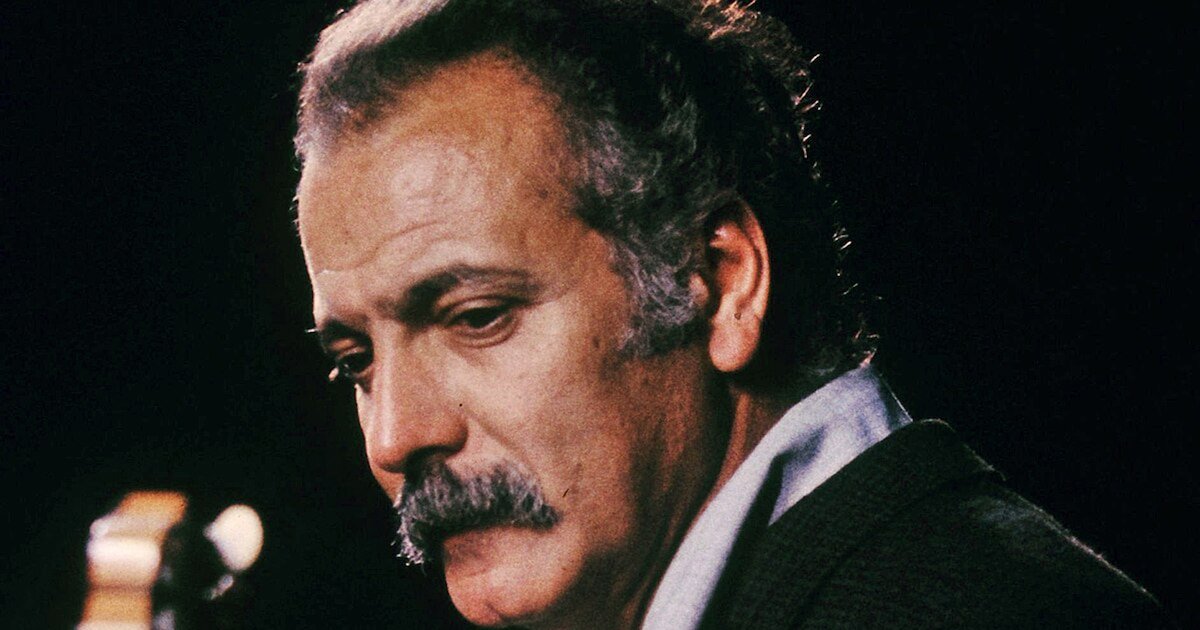
Durante este período de formación intelectual, Brassens dejó en suspenso sus “cancioncitas” para abrazar la carrera de poeta y escritor. Relee las obras de François Villon, quien se volverá no sólo una fuente de inspiración, sino además un modelo de escritura para sus textos. “Villon me interesó […] siempre me tentó esa idea del margen. Viví con Villon durante dos años. Era lo único que leía. Me había convertido en él”. Brassens se imagina ladrón de caminos, y en sus canciones encontraremos homenajes discretos, alusiones, deferencias, como en la canción “Le moyenâgeux”.
Otro de sus autores de cabecera es La Fontaine, así como Albert Marchon, con Le Bachelier sans vergogne, Oscar Wilde y La balada de la cárcel de Reading, Conrad y Tifón, sin olvidar a Claude Tillier con Mi tío Benjamín, Georges Fourest y La Négresse blonde. Logra recitar páginas enteras de cualquiera de estas obras.
Son terreno fértil para sus canciones y su poesía.
“Todo está determinado por lo que leí. Incluso leí autores de comedias livianas. En fin, la verdad es que leí a mucha gente. Los escritores que me gustaban me gustaban porque encontraba en ellos algo que ya estaba en mí y yo lo ignoraba”.
Con ayuda de los tratados de versificación a los que nunca abandona, así como las obras de gramática, ortografía y varios diccionarios, Georges Brassens recupera el tiempo perdido, deambula por los muelles a la pesca de obras poco conocidas, se apasiona por la sintaxis y la poética. Entre 1940 y 1944, escribe entre trescientos y cuatrocientos poemas y un centenar de canciones.
En 1947, Georges Brassens publica, pagándolo de su bolsillo, La lune écoute aux portes, texto delirante y surrealista que en principio iba a llamarse: “Si les lièvres avaient des fusils, on n’en tuerait pas autant” o también “Lalie kakamou”. La obra lleva la firma de Georges-Charles Brassens, en homenaje al autor Charles-Louis Philippe, al que Georges admira. Brassens hace que impriman en la carátula: “Biblioteca de la nariz en alto nrf Gallimard”, y le envía un ejemplar del libro al editor acompañado de una carta: “No quise hacerle perder un tiempo valioso. Por adelantado, estoy seguro de su consentimiento. No obstante su fama de ladrón monstruoso, su prestigio es innegable y lo nombro mi editor”. Cree que con eso va a generar un caos en medio de la editorial y así llamar la atención de la dirección. Pero no recibe ninguna respuesta. Sus únicos lectores siguen siendo sus amigos y Jeanne, la fiel, que lo apoya contra viento y marea.
En 1950, Brassens escribe La Tour des miracles, que recién será publicado en 1953, año de la consagración. Esa novela le sirve de ayuda memoria, ya que allí se encuentran, como en un cuaderno de apuntes, personajes, fragmentos de relatos, expresiones distorsionadas que le rondan por la cabeza desde hace tiempo y que más tarde le serán útiles para nuevas canciones. Esta crónica de la marginalidad, cuya redacción se prolongó a lo largo de varios meses, le permite dar rienda suelta a su gusto por el absurdo, un surrealismo con tintes de humor.
En 1951, en un paseo por el mercado de pulgas de Vanves, se encuentra por casualidad con su exprofesor Alphonse Bonnafé. Feliz de volver a ver al responsable de que todo comenzara, Brassens le muestra sus escritos. Con la franqueza que lo caracteriza, el profesor no duda en criticarlos, lo que decide a Brassens a abandonar el arduo camino de la poesía. De aquí en más, sólo se dedicará a la canción, ese arte que considera menor. No quiere en absoluto convertirse en cantante, sino hacerles llegar sus canciones a otros intérpretes y, sobre todo, ganar algo de plata para ayudar a Jeanne y Marcel.
Sin embargo, la poesía lo acompañará a todas partes y a lo largo de toda su vida. Forma parte del meollo de su obra. Y así, con total naturalidad, Brassens adapta a los poetas que le gustan.
Paul Fort, poeta de las hadas y los hechiceros, “ese hombre que plantaba árboles en medio de su casa”, como le gusta a Brassens describirlo, será el primero al que musicalizará un poema, “La complainte du petit cheval blanc”. Paul Fort no sólo acepta que cante sus poemas, sino que también le permite cambiar algunas estrofas, acortarlas, cambiar los títulos. Le dice a Brassens: “Te permito hacer lo que quieras. Sé que no me vas a traicionar”. Así, “L’amour marin” pasará a ser “Marine”, “Le convoi de Paul Verlaine après un tourbillon de neige” será “L’enterrement de Verlaine” y “La com plainte du petit cheval blanc” será “Le petit cheval”. Un día, Brassens confesará a propósito de Paul Fort: “Si yo hubiera sido un simple músico, él habría sido mi letrista”.

Brassens ahonda en la obra poética de los autores que admira. Hurga, meticuloso, en sus libros, para descubrir poemas. Dentro de su repertorio, se encuentran tanto poemas de Victor Hugo, “La légende de la non ne” o “Gastibelza”, como de Lamartine, “La pensée des morts”, del que conserva sólo siete estrofas. Procede de igual modo con el poema de Jean Richepin, “Les oiseaux de passage”, que reduce considerablemente, para adaptarlo a la canción. Corta los ocho primeros cuartetos y luego suprime la mitad de las estrofas res tantes del poema. Cambia el título de “Chanson des cloches de baptême” por “Philistins”. En el poema de Aragón “Il n’y a pas d’amour heureux”, elimina la última estrofa, donde el poeta habla del amor a la patria, le cambia así el sentido. Una manera de Brassens de apropiarse de esos poemas. Así ocurre con “Les pas santes”, poema de un tal Antoine Pol, descubierto en el mercado de las pulgas de Vanves en 1942. Brassens se toma la libertad de suprimir dos estrofas. En 1971, al fin se decide a cantarla luego de muchos años de trabajo de composición. Gracias a Brassens, algunos poemas desconocidos u olvidados se vuelven muy populares. “Canto para las porteras cultas”, decía. Sin olvidar nunca sus orígenes, anhelaba familiarizar al público en general con la poesía como Alphonse Bonnafé había hecho con él unos años atrás.
Todas las mañanas, desde las cinco hasta las ocho, Brassens escribe. “Mal que te pese, trabajo con las canciones. No todo el mundo tiene la suerte de ser periodista u oficinista. Tampoco puedo convertirme en ladrón de caminos. Es muy común y peligroso. Además, mi familia del sur de Francia se opone y mi madre me amenazó con matarse si se me ocurría manchar la reputación del clan Brassens. Sólo me queda el music hall. Peor para ti, ya que, por mi parte, voy a zafar” (carta a Roger Toussenot).
Instalado en la mesa de trabajo, Brassens anota todo por miedo a olvidarlo. Apenas surge una idea, la anota en el papel de manera aproximada, aunque no rime. Después, como un escolar, elabora el plan de la canción: reparte las estrofas, resume el contenido y le da forma al conjunto. Más tarde, pule, tacha, retoca el texto con un respeto estricto a las reglas de versificación, una preocupación extrema por el ritmo. Cincela los versos, no deja nada librado al azar. Si no le sirve una palabra, la cambia, retoma toda la canción hasta encontrar la palabra justa.
Guarda todos esos borradores para poder volver sobre una idea, un verso o una estrofa, si es necesario. En su libreta, transcribe pasajes enteros de viejos textos, expresiones anotadas en varias páginas, que son el puntapié inicial para una canción a la que no le encuentra continuación en el momento en que la escribe.

Así, pasa mucho tiempo con los borradores de futuras canciones. Sabemos que “Supplique pour être enterré à la plage de Sète” exigirá no muchos meses, sino unos diez años de trabajo para al fin emerger de la libreta de apuntes. Es el precio a pagar para que al final no haya nada que modificar. “Cien veces intenté cambiar una coma de tus canciones —confesará Jacques Brel—. Y nunca lo logré”.
“Trabajo una enormidad, por lo general, siempre tengo un verso o dos que me caen del cielo e intentó hallar la continuación. ‘La mauvaise réputation’ la encontré de casualidad; ‘Les braves gens n’aiment pas que l’on suive une autre route qu’eux’ [“A la gente le sienta mal que haya un camino personal”1] es un pensamiento que me vino así como así, tengo la costumbre de pensar en proverbios o en versos, y luego me dije: ‘¿Qué voy a hacer con esto?’. Lo había anotado en mi libreta donde apunto todo lo que se me cruza por la cabeza y un día, al consultar la libreta, dije: ‘¿Qué puedo sacar de bueno de esto?’. Intenté confrontar mis opiniones con las de otro grupo y poco a poco encontré imágenes, ideas, anoté todo. Cuando tuve cinco o seis páginas, traté de conservar sólo lo que me pareció más valioso, lo mejor”.
Brassens perfecciona sus propias técnicas de escritura. Anota expresiones inventadas, como “point d’accrocs dans sa robe de mariée” [“agujeros en su vestido de no via”] o “Ulysse de banlieue” [“Ulises suburbano], que se convierten en punto de partida para otras canciones. Así nace “Pénélope”, la historia de una mujer que ansía escapar del yugo estrecho en el que vive.
Vuelve a copiar pedazos de poemas que le gustan. Después guarda los versos apretujados en uno de los tantos libros de la biblioteca. Más tarde, abre el libro al azar y vuelve a encontrar los poemas, los versos que serán fuente de inspiración para una nueva canción.
“Las historias son siempre las mismas. No precisamente los personajes, sino más bien las emociones. Recibo impresiones, reparto todo eso en escenas con personajes de manera un tanto arbitraria. Es más poético ubicar a los enamorados con árboles donde se pueden grabar los nombres, un río donde se puede hacer sapito”.
Brassens trabaja siempre con el mismo pequeño teatro: cinco o seis personajes que escenifica en situaciones a veces grotescas o tiernas. Un policía, una muchacha, un cura, que actuarán en escenas tomadas de su vida personal o de la de otros. Cuando muere su abuelo, oye esta expresión: “Muerto de muerte natural”. Tiempo más tarde, esa expresión lo inspirará para la escritura de “Bonhomme”.
Algunas anécdotas de su vida cotidiana también son musicalizadas, como es el caso de “Le vieux Léon”. “Es la historia de un tipo que tocaba el acordeón en la calle de Vanves en el distrito catorce y del cual todos nosotros nos mofábamos un poco, yo qué sé, porque no nos gustaba o creíamos que no nos gustaba el acordeón. Y entonces, se muere, y nos dimos cuenta de que nos gustaba el acordeón y que lo queríamos. ‘Le vieux Léon’ es una declaración de amor que por desgracia llega tarde, ya que el destinatario no puede escucharla” (entrevista en Europe 1, el 9 de febrero de 1974).
[Fotos: Universal Music Group]
INTERNACIONAL
Jesse Ball resignifica a Charly García con aquello de “la mustia sensación de que el tiempo se echó a perder”
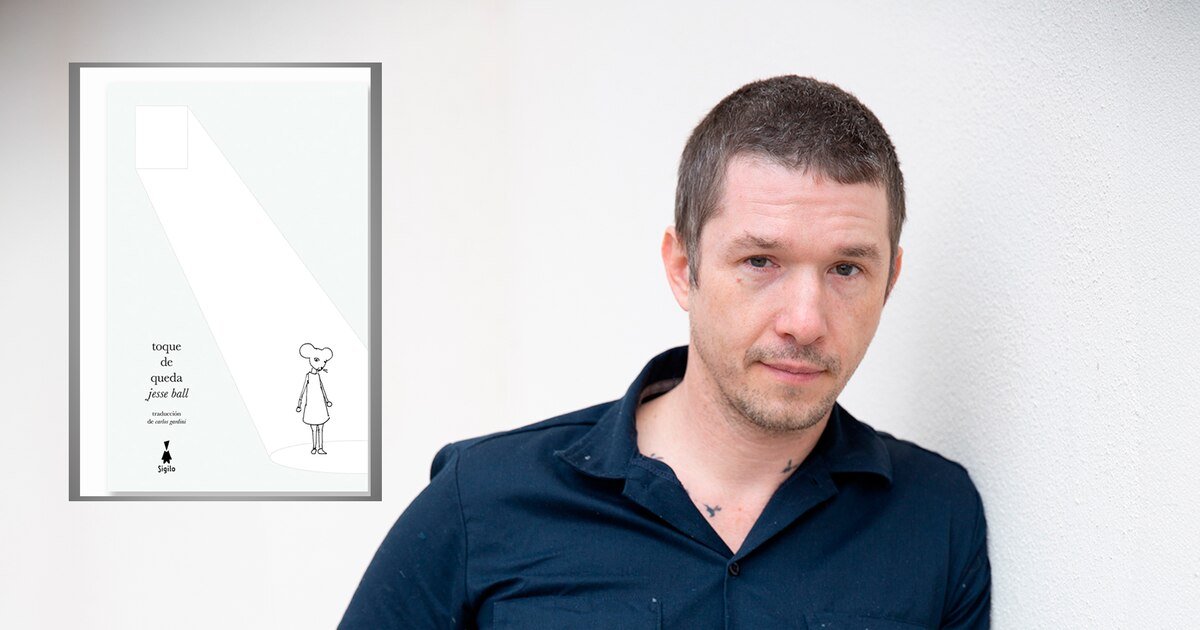
Con excelente traducción de Carlos Gandini, la editorial Sigilo acaba de publicar una nueva edición de Toque de queda de Jesse Ball y es una buena oportunidad para adentrarse en la obra de un autor original, diferente.
Toque de queda se desarrolla en una ciudad sin nombre gobernada por un régimen represivo donde la música y el arte están prohibidos, y el silencio se impone mediante el miedo. William Drysdale, que en su día fue un violinista de renombre, ahora trabaja escribiendo epitafios para aquellos que han desaparecido o esperan su ejecución. Su hija Molly, de ocho años, muda pero con una imaginación desbordante, se convierte en el corazón emocional de la novela. Cuando William rompe el estricto toque de queda de la ciudad para asistir a una reunión secreta de la resistencia, Molly se queda atrás y monta una oscura obra de títeres con un vecino: un relato alegórico de la historia de su familia y la opresión de la ciudad.
Desde las primeras páginas, nos adentramos en un mundo fracturado construido a partir de fragmentos de memoria y silencio. Su narrativa toda se resiste a la linealidad y a las convenciones; distorsiona el tiempo, mezcla escenas y nos aleja de la comodidad de la simple ecuación “causa y efecto”. Lo que Ball consigue con esta forma fragmentada no es simplemente un juego estético, sino un espejo del caos interno de sus personajes. La vida en ese lugar imaginado no se desarrolla de forma ordenada, sino que avanza caótica, ensombrecida por el dolor y la incertidumbre. Los momentos llegan fuera de secuencia, no para confundirnos, sino para situarnos en el ritmo del trauma. Aquí, el tiempo es elástico. Los recuerdos se funden con el presente. El dolor se repite sin cesar. Cada fragmento forma parte de un mosaico más amplio, incompleto pero resonante, y el lector se convierte en un participante activo, que va armando con las piezas un rompecabezas a partir de los silencios y las sugerencias. Ball le pide mucho a sus lectores. Y eso se agradece.

Así como en la mente, la novela se acomoda al funcionamiento real del pensamiento y la memoria. No hay pausas entre capítulos y perdemos un poco el norte narrativo. En su lugar, Ball nos ofrece una forma de sentir el tiempo como lo hacen sus personajes: fluido, inestable e inquietante. Capta profundamente la naturaleza subjetiva de la memoria: cómo, en momentos de profundo dolor o reflexión, nuestra mente no reproduce los acontecimientos en orden cronológico, sino que da vueltas, salta y se detiene en fragmentos, como en un sueño recurrente.
La urgencia emocional de la novela es por momentos surrealista. Incluso las escenas más banales vibran con tensión, con la certeza de que algo invisible siempre está presionando. Hay un temor silencioso que impregna Toque de queda, una sensación de que lo ordinario puede desmoronarse en cualquier momento y lo cotidiano se vuelve extravagante, demoledor, o simplemente extraño.
En su obra, Ball escribe sobre la soledad y muchas veces responde a la frase de la canción de Charly García “la mustia sensación de que el tiempo se echó a perder”: la conversación que no se tuvo, la mano que no se tomó, el momento que se perdió. No es melodramático. Es simplemente cierto. Esa verdad duele.

Los dos personajes principales de la novela están habitados por la soledad. La soledad de William, el padre de Molly, tiene varias capas: es el dolor de un viudo, el silencio de un hombre que antes estaba lleno de vida y la impotencia de un padre que intenta proteger a su hija de un mundo brutal. Aunque está profundamente dedicado a Molly, está emocionalmente aislado, resignado, y cauteloso. Su silenciosa rebelión al romper el toque de queda es tanto un acto de desesperación como de esperanza, un gesto solitario contra un sistema abrumador. La soledad de William no es ruidosa, es una quietud, un peso, una presencia constante en su vida interior. Y Molly, la hija de ocho años de William, es muda, pero su silencio es rico en expresiones. Muy inteligente y creativa, procesa el mundo a través del juego, los símbolos y la imaginación. Su soledad es diferente a la de su padre: está llena de nostalgia e inventiva. Extraña a su madre, siente el dolor de su padre y, sin embargo, encuentra formas de conectar a través de historias y títeres. Su soledad está llena de color y vida, pero sigue siendo una soledad nacida de la pérdida y el silencio.
Sin embargo, a pesar de su melancolía, Ball salpica su narrativa con momentos de bondad, encuentros que parecen pequeñas misericordias. Una mirada compartida. La palabra de un desconocido. Estas escenas nunca son exageradas, pero tienen el peso emocional de los discursos de una novela. En el mundo de Ball, una sola mirada puede redimir una vida. Y ese minimalismo es clave. No llena la página de adornos. En cambio, nos da espacio para sentir. Las frases son cortas, sí, pero se abren a un vasto territorio emocional. Donde otros escritores explican, Ball sugiere. Y no es solo una elección estilística, es una invitación. Obliga al lector a inclinarse y hurgar, a habitar los silencios, a reconstruir las emociones no expresadas.
Toque de queda es una exploración tranquila pero resonante de la vida bajo la tiranía, donde se impone el silencio y la soledad, y la imaginación se convierte tanto en refugio como en resistencia. A través de las vidas silenciosas de William y Molly, Ball examina cómo los individuos afrontan la pérdida, no solo de sus seres queridos, sino también de la libertad, la expresión y la verdad. Su relación se convierte en un santuario en un mundo despojado de sentido, y sus pequeños actos de creatividad se erigen como un silencioso desafío contra la maquinaria del control. Con su lenguaje sobrio y su atmósfera inquietante, Toque de queda nos recuerda que, incluso en los momentos más oscuros, el espíritu humano busca conexión y que las historias, por frágiles que sean, constituyen el puente entre la memoria y el presente, entre la soledad y la compañía, entre la libertad interior y la opresión exterior.

 POLITICA3 días ago
POLITICA3 días agoLa justicia de Santa Cruz desafío a la Corte Suprema e incluyó a Cristina Kirchner en el padrón electoral

 POLITICA2 días ago
POLITICA2 días agoCristina Kirchner pidió salir a militar para que los que “están hambreando a la gente tengan su merecido en las urnas”

 POLITICA2 días ago
POLITICA2 días agoEl candidato libertario por el que Kicillof despidió a 24 policías denunció “una cacería de brujas” en la Provincia













